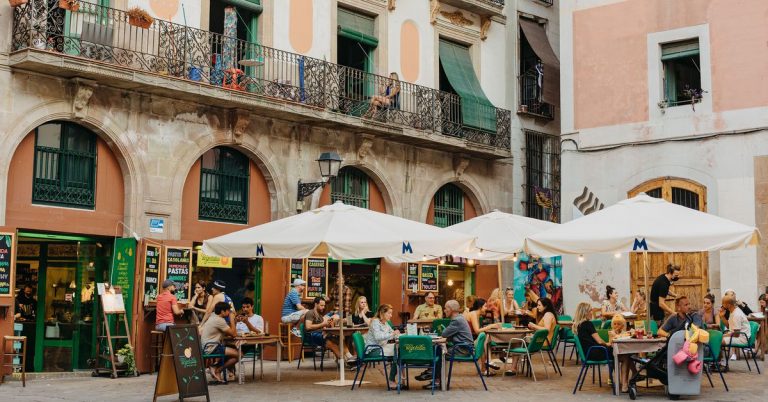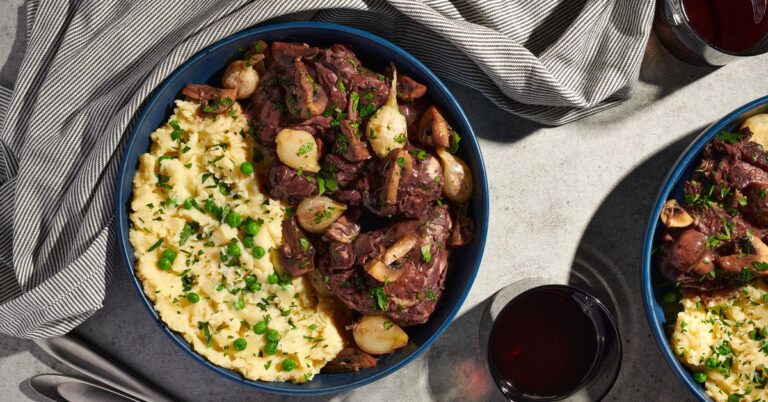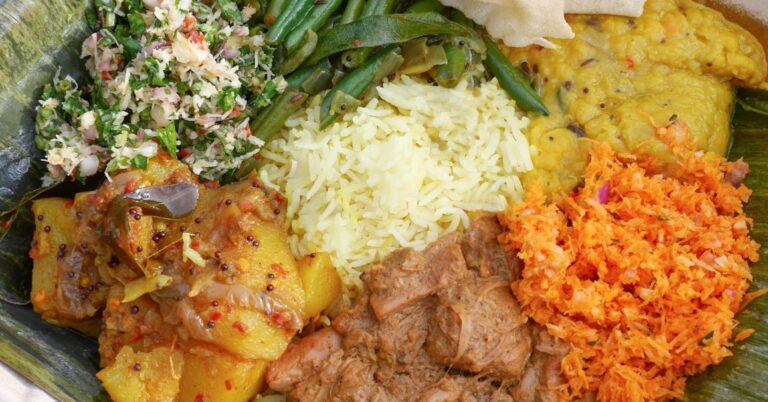An Appreciation of Pomegranate Molasses
When I was growing up, family dinners were always a lively and frenzied event. As my mom and aunts were putting the finishing touches on their dishes, I would take advantage of the commotion to inconspicuously steal a kibbeh or two before the platter could make its way out of the kitchen and onto the crowded dinner table. Even as a child I knew there was a special “something” in those crunchy lamb-filled balls, a familiar flavor that I also found in stuffed grape leaves, baba ghanoush, and many other dishes I grew up with in Amman, Jordan. Something peculiarly tart and mildly sweet, and that lent a gentle, curious pop to balance out the generous meat filling. At around the age of 16, when my curiosity about food led me to make more and more messes in my mother’s kitchen, I found out that the flavor was just a few drops of pomegranate molasses.
Pomegranate molasses has very deep roots in the Middle East, where an abundance of pomegranate trees naturally led people to think of creative ways to use the fruit, which is harvested in October and November. In Jordan’s northern city of Irbid and throughout Lebanon’s mountainous regions, women with ruby-stained hands de-seeded the fruit, juiced the arils, and strained the juice. Over an open fire, they cooked down the liquid for hours until it was reduced to a thick, dark reddish-brown concentrate. The intensive labor made the task a communal one; even children were summoned to lend a helping hand.
Native to the region stretching from modern-day Iran to India, pomegranates, known as rummān in Arabic and anar in Persian, serve as a symbol of light at the winter solstice celebration of Shab-e Yalda, where verses by the 14th-century poet Hafiz are recited. Pomegranates are often spotted in ancient Persian art and even in Rumi verses:
Whole gardens bloom when pomegranates smile
To be like mystics, stay with them awhile
Today, Lebanon and Iran are the major countries of pomegranate production. But for farmers in the Syrian town of Darkush, in the country’s northwest region of Idlib, the pomegranate is an emblem of perseverance: the town’s famed pomegranate harvest props up the region’s economy.
Most pomegranate molasses is now sold in glass jars on grocery store shelves, mass produced in warehouses far from the hills where it was once made. In the last decade, it has become more accessible across the globe, a trend fueled in part by the growing popularity of Persian and Middle Eastern dishes among Western cooks. In their iconic cookbook, Jerusalem, Yotam Ottolenghi and Sami Tamimi popularized recipes like lamb-stuffed quince and wheat berries and Swiss chard, both of which feature pomegranate molasses as an ingredient.
Still, for all of the interest in pomegranate molasses, it is sad to think of it getting tucked away in a shadowy crevasse of the pantry after being used for that one Middle Eastern recipe. The luscious syrup is much more versatile than many cooks might assume. I’ve used it in lieu of balsamic vinegar to perk up vinaigrettes along with a pinch of sumac, which creates a flavor reminiscent of fattoush. With a light hand, I’ve added it to lamb stews to lend them a sweet and sour finish, and to grilled meats as a tangy glaze. I’ve finished tomato sauces with it as a nod to the bright, gently sweet tomato sauce in the okra stew I grew up eating. And I’ve dabbled with it in desserts, drizzling it on top of an orange blossom panna cotta garnished with fresh pomegranates and adding it to a caramel sauce on top of Häagen-Dazs vanilla ice cream.
When I first spotted Al-Wadi’s pomegranate molasses on the shelf of one of my neighborhood grocery stores, I felt a jolt of excitement. It was not only an ingredient I knew but also a brand I recognized from home. Now that I live in New York, my memories of my family’s energetic dinners have become blurrier and blurrier over the passage of time. The molasses sharpens those memories. In my apartment, with my hanging plants and food posters on the wall, I now realize that many flavors of my childhood, and the levity I associate with them, can easily be brought into my kitchen to recreate traditional family recipes and make brand-new ones. All I need is a jar of pomegranate molasses.
Laila Ibrahim is a New York based chef and food writer who specializes in Mediterranean cooking.






